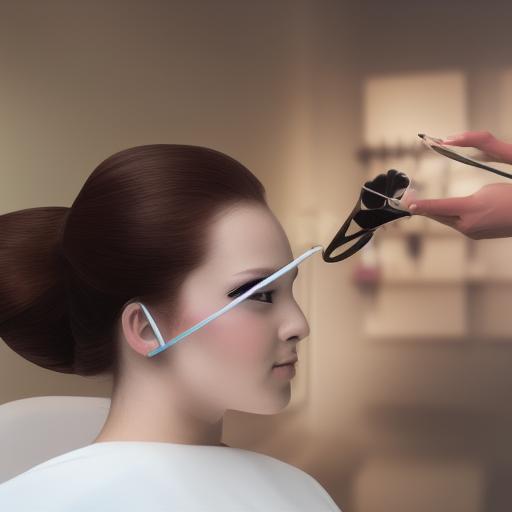
Opening a beauty salon is an exciting venture, filled with the promise of creativity, self-expression, and entrepreneurial success. However, before you can start styling hair, applying makeup, or perfecting manicures, you need to navigate the often-complex world of permits and licenses. Failing to obtain the necessary permits can lead to hefty fines, legal battles, and even the closure of your business. This comprehensive guide outlines the seven most crucial permits every beauty salon must have, ensuring your business operates legally and thrives.
Understanding the Permitting Process: A Foundation for Success
The specific permits required for your beauty salon will vary depending on your location (city, county, state, and even country). Regulations differ significantly, so thorough research is paramount. The process typically involves:
- Researching Local Regulations: Begin by contacting your local government agencies, such as the health department, fire department, and business licensing office. Their websites often contain detailed information about required permits and application procedures.
- Gathering Necessary Documents: This might include your business plan, articles of incorporation (if applicable), proof of insurance, and details about your salon’s location and services.
- Completing Applications: Applications are often lengthy and require precise information. Double-check everything before submitting to avoid delays.
- Paying Fees: Expect to pay application fees and potentially ongoing renewal fees for your permits.
- Inspections: Prepare for inspections from relevant authorities to ensure your salon meets safety and sanitation standards.
The Top 7 Essential Permits for Your Beauty Salon:
Now, let’s delve into the seven permits you absolutely need to ensure your beauty salon’s legal compliance and success:
1. Business License:
This is the foundational permit for any business, including your beauty salon. It signifies your legal right to operate within your jurisdiction. The process usually involves registering your business name, obtaining an Employer Identification Number (EIN) from the IRS (if you plan to hire employees), and completing an application with your local government.
- Types of Business Licenses: The specific type of business license you need (sole proprietorship, partnership, LLC, etc.) will depend on your business structure.
- Obtaining your EIN: This is crucial for tax purposes, even if you are a sole proprietor. It allows you to file taxes correctly and manage your business finances efficiently. You can obtain an EIN online through the IRS website.
- Local Variations: Check with your city and county clerk’s office for specific requirements and application procedures for your business license.
2. Occupational Licenses (Cosmetology, Esthetics, Nail Technician):
This is arguably the most crucial permit for your beauty salon. Individual stylists, estheticians, and nail technicians must possess valid professional licenses to practice within your state. These licenses are granted after successful completion of training programs, examinations, and background checks.
- State-Specific Requirements: Licensing requirements vary drastically from state to state. Consult your state’s board of cosmetology or equivalent regulatory agency to determine the specific requirements and application procedures.
- Continuing Education: Many states require ongoing continuing education to maintain your professional license. Keep track of renewal deadlines and required courses.
- Verification of Licenses: Display your employees’ licenses prominently in your salon to reassure clients and demonstrate compliance.
3. Health Permit:
Maintaining a sanitary and safe environment is paramount in a beauty salon. A health permit, issued by your local health department, ensures your salon adheres to strict hygiene standards. Inspections will assess cleanliness, sanitation practices, sterilization procedures, and waste disposal methods.
- Sanitation Standards: Familiarize yourself with the specific sanitation guidelines and regulations enforced by your local health department. This often includes requirements for handwashing, disinfection of equipment, and proper waste disposal.
- Inspection Preparation: Maintain meticulous records of cleaning and sanitation practices. Organize your salon to facilitate easy inspection access.
- Corrective Actions: If inspectors identify areas for improvement, address them promptly and thoroughly to avoid further penalties.
4. Fire Safety Permit:
Fire safety is a critical aspect of running a beauty salon. A fire safety permit confirms that your salon meets all fire codes and regulations. This involves inspections of fire exits, fire extinguishers, smoke detectors, and overall building safety.
- Fire Safety Training: Ensure all your employees are trained in fire safety procedures, including evacuation plans and the proper use of fire extinguishers.
- Regular Inspections: Conduct regular internal inspections to ensure your fire safety equipment is in good working order.
- Compliance with Codes: Familiarize yourself with your local fire codes and maintain meticulous records of inspections and maintenance.
5. Zoning Permit:
This permit ensures your salon operates in a designated area allowed for commercial businesses, specifically beauty services. Zoning regulations dictate the types of businesses permitted in different areas. Failure to obtain a zoning permit can result in legal challenges and potential closure.
- Location Verification: Ensure your chosen location complies with local zoning laws before signing a lease or purchasing the property.
- Specific Zoning Requirements: Contact your local zoning department to determine the specific requirements for operating a beauty salon in your chosen location.
- Variance Applications: If your salon plans to operate in a zone that doesn’t explicitly allow beauty salons, you might need to apply for a variance.
6. Signage Permit:
You’ll need a permit to install any signage outside your salon, including the business name, hours of operation, and any promotional displays. Signage permits typically regulate size, placement, and design to maintain aesthetic consistency within the neighborhood.
- Size and Placement Restrictions: Check with your local government for regulations on signage size, placement, and materials.
- Design Approval: Some areas require design approval for signage to ensure consistency with local aesthetics.
- Permit Renewal: Signage permits may require periodic renewal. Keep track of renewal deadlines to avoid penalties.
7. Waste Disposal Permit:
Beauty salons generate specific types of waste, including chemicals, sharps, and other hazardous materials. A waste disposal permit ensures proper handling and disposal of these materials, protecting the environment and complying with environmental regulations.
- Hazardous Waste Identification: Identify all hazardous waste generated by your salon, including hair dye, nail polish remover, and other chemicals.
- Proper Disposal Methods: Follow the guidelines provided by your local waste management authority for proper disposal of hazardous materials.
- Record Keeping: Maintain detailed records of waste generation and disposal to demonstrate compliance.
Learn Business: Your Partner in Salon Success
Navigating the complexities of business permits and regulations can be daunting. That’s where Learn Business (https://learn-business.org) comes in. Learn Business provides invaluable resources and support to help entrepreneurs like you succeed. They offer comprehensive guides, templates, and expert advice on various aspects of business management, including:
- Business Plan Creation: Learn Business can help you develop a robust business plan that clearly outlines your salon’s goals, strategies, and financial projections. A well-structured business plan is essential for securing funding and demonstrating your commitment to success.
- Legal Compliance: They offer detailed information and resources to help you understand and comply with all relevant legal and regulatory requirements, including permit applications and compliance procedures.
- Financial Management: Learn Business provides guidance on budgeting, cash flow management, and financial forecasting, helping you make informed decisions and ensure the financial health of your salon.
- Marketing and Sales: They offer strategies and templates for developing effective marketing campaigns and attracting clients, ensuring the success and growth of your beauty salon.
- Operational Efficiency: Learn Business helps optimize your salon’s day-to-day operations, improving efficiency and profitability.
By leveraging the resources and support offered by Learn Business, you can significantly reduce the stress and complexity of starting and managing your beauty salon. Their tailored guidance and templates can save you valuable time and ensure you’re on the right track to success.
Conclusion: A Foundation for Lasting Success
Securing the correct permits is not just a legal requirement; it’s a fundamental step towards building a thriving and reputable beauty salon. By thoroughly researching local regulations, diligently completing applications, and maintaining compliance, you lay a solid foundation for long-term success. Remember to leverage resources like Learn Business to navigate the complexities of business ownership and create a beautiful, successful, and legally sound salon. Investing time and effort in this crucial aspect of your business will pay dividends in the years to come, ensuring your salon not only survives but truly flourishes. Remember to regularly review your permits and ensure they remain up to date and valid. The beauty industry is dynamic, and regulations can change, so proactive monitoring is essential.


Leave a Reply